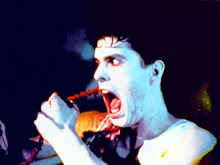
Directed by: Francis Ford Coppola
Written by: Francis Ford Coppola
Starring: Shirley Knight, James Caan, Robert Duvall, Marya Zimmet, Tom Aldredge, Laura Crews, Andrew Duncan, Margaret Fairchild
Shirley Knight plays Sara Ravenna, a Long Island housewife who runs away from her marriage when she discovers she is pregnant. She plans to drive into America's heartland and start anew. Along the way she picks up a friendly hitchhiker (James Caan) who calls himself 'Killer.' Soon she discovers that the good natured 'Killer' is actually brain damaged, and by picking him up she has unknowingly taken on a huge responsibility. The two of them drive all the way to Nebraska, where Sara gets Killer a job helping out at a roadside reptile farm. It is here that Sara meets Gordon, a local cop, and soon things go horribly wrong for everyone.
This is a powerful drama about people disconnected from society, alienated by the choices they make or by the limits imposed on them by others. Even with such a low budget and a very freewheeling attitude, the film is able to capture everything that needs to be said through these clearly defined characters. Shirley Knight has a complex, diverging role and there are moments of some awe-inspiring acting by her. One of my favorites is when she is on the telephone calling her home to her worried husband the first time. It is such a tense scene on both ends, and in every small gesture and inflection of a word, so much about her is spoken with so little. Then comes in the character of 'Killer' played by James Caan. This character is unlike any I've ever seen him play, and he performs wonderfully. It's one of his best performances as he is very restrained and moving.
The way Coppola develops the characters by using short, dream-like flashbacks is very clever, adding a fragmented kind of view onto it all. The quick flashbacks that are graphic and self-contained contrast well with the longer shots in some crucial scenes. Also, because this film was shot on location all over the Eastern U.S., it offers an interesting, authentic look at America in the late 1960's.
I haven't seen any other films starring Ms. Knight, I'm only familiar with her more recent work on television, usually playing a nagging mother in law or a dotty old woman. It was great seeing her so young, beautiful, and so wonderfully subtle in this movie. It's also kind of a shame that James Caan went on to be typecast as the 'tough guy' for the rest of his career, because this film evidenced that he is capable of so much more than that.

Final Verdict: See It
























